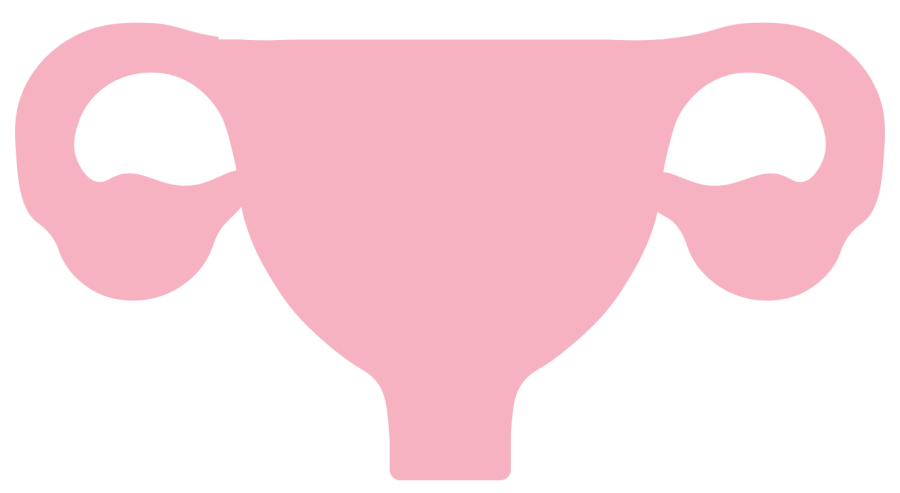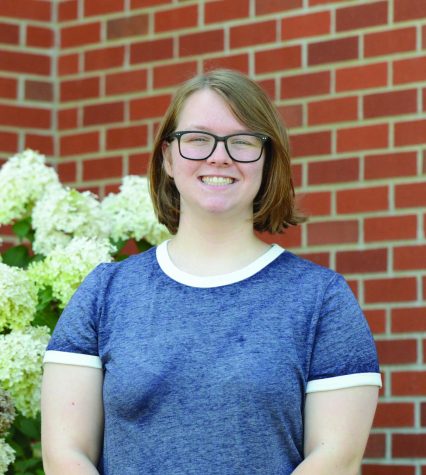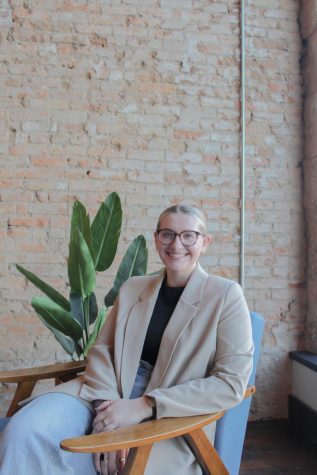Roe v. Wade overturn impacts student groups, little change for health clinic
November 16, 2022
The United States Supreme Court decision to overturn Roe v. Wade has triggered shifts to the programming efforts of some SDSU student organizations.
The court voted to leave abortion laws up to individual states June 24, 2022, and South Dakota trigger laws made abortion illegal for any reason at any stage of pregnancy.
How it Impacts Student Groups
Jacks for Life is the university’s student group focused on “sav[ing] lives threatened by induced abortion and euthanasia.”
Ryan Vlaminck, president of the organization, said more people have been attending meetings since the start of the semester.
“It might just be the freshmen this year, but we’ve seen a big increase in people coming to our events,” he said. “We had a little bit over 40 people come to our first meeting.”
The group also has planned several events, including speakers and seminars or educational events for members on pro-life issues.
The Feminist Equality Movement is the university’s student group focused on “supporting and developing women-centered resources, activities and programs for all members of the university community.”
Kasandra Knutson, president of FEM, said her club has not seen the same boom in membership. FEM has a position for a reproductive rights program coordinator, but that position is currently vacant.
In the past, FEM has worked with Planned Parenthood in Sioux Falls and has promoted programming educating about reproductive rights. Knutson said after the Supreme Court’s ruling, the club is also working with Dakotans for Health to start petitions to codify abortion rights into law. The first petitions were released Nov. 5.
“We have until July 1 to get 60,000 signatures, and then it would be on the ballot,” she said.
Jacks for Life has historically worked with pregnancy health centers like Alpha Center in Sioux Falls and done events like donation drives for baby clothes, car seats and other supplies.
Both clubs have experienced some pushback to their programming centered on reproductive rights and abortion on campus. Knutson said during the club’s first meeting this semester, a group of students that she claimed was from Jacks for Life stood outside the meeting space, though no altercations occurred.
Vlaminck said posters for Jacks for Life meetings and events have been torn down or vandalized.
Background
Roe v. Wade stated that a person could choose to have an abortion up until the fetus was viable, or could survive outside of the womb, at about 24 to 28 weeks, according to Justia, an online legal database.
The U.S. Supreme Court moved to overturn this ruling in Dobbs vs. Jackson, stating that the Constitution does not give the right to an abortion.
Roe v. Wade said abortion fell under the protection of the Due Process Clause of the Fourteenth Amendment, which says “no State shall make or enforce any law which shall abridge the privileges or immunities of citizens of the United States.”
This left abortion rights up to the states to decide. South Dakota was one of 13 states with abortion trigger bans in place should Roe v. Wade ever be overturned. Currently, abortion is only legal in the state in case of a medical emergency to save the life of the parent.
Other Groups
Though Jacks for Life and FEM have seen changes after the Supreme Court’s ruling, services related to sexual and reproductive health have not changed at the student health clinic in the Miller Wellness Center.
Janae Jacobsen, a certified nurse practitioner at the clinic, said students can receive pregnancy testing at the clinic and can be referred to an OBGYN or to Option 1, a women’s health center in Brookings.
“We have not seen any difference in the frequency of these types of appointments since changes have been made with Roe v. Wade, however … this is not generally a very common appointment at our clinic even prior to this change,” Jacobsen said.
The clinic also offers male and female wellness exams, STI testing and contraceptive prescriptions like birth control. The Jackrabbit Pharmacy and the health vending machines by the clinic also have condoms and Plan B available.
Knutson said FEM usually has condoms available for members to take as needed during meetings and is hoping to have pregnancy tests at the next FEM meeting Nov. 29.
Vlaminck said Jacks for Life doesn’t do much programming with contraceptives or sex education. The club also does not work with any adoption services, though Vlaminck said this was something he would like to incorporate into the club’s programming in the future.
Future Legislation
Vlaminck said he thinks the overturning will be here to stay, at least for a while.
“Legislation wise, I don’t think it’s going to change in South Dakota,” he said. “I think it is good that they did put it up to the states … it took the federal hand out of it.”
Knutson doesn’t agree.
“I’m definitely hopeful for Roe v. Wade to be codified into South Dakota law,” she said.
According to the SDSU Poll conducted earlier this semester, 74% of South Dakotans support abortion rights in the case of rape or incest. Fifty-five percent strongly support this type of access.
About 46% of South Dakotans support abortion in the first trimester as opposed to 43% who are opposed to it, and 84% support abortion to save the life of the parent versus 8% who do not.
What’s next?
Vlaminck said his club plans to continue educational programming on pro-life stances.
“A lot of students just want education on the matter,” he said. “I think a lot more people are interested in wanting to actually know the facts, know the truth and be more educated on the issue, whether pro-life or pro-choice.”
Knutson shared similar sentiments about the importance of education right now.
“Since Roe v. Wade, we kind of have to step into this role of advocates, because especially at SDSU, there’s a lot of very sheltered students that come from little, tiny towns in the middle of nowhere, and sex was always a shameful thing to them,” she said. “We’re just trying to do our best on this little campus [to educate].”






















